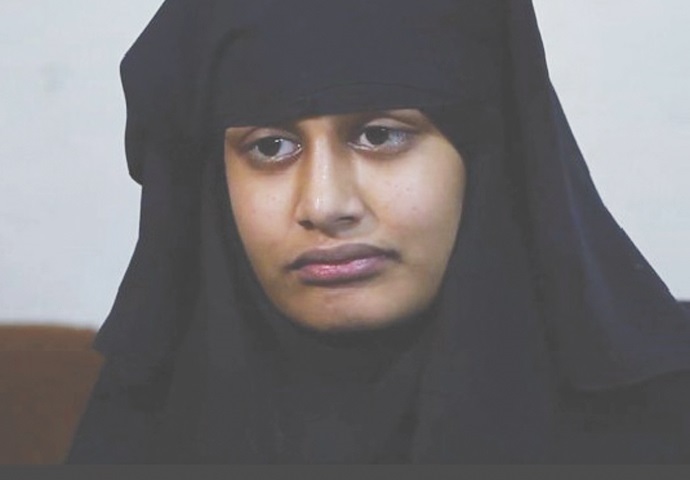Layla Omar from Women of Colour, Global Women’s Strike, says the stripping of Shamima Begum’s British citizenship is Islamophobic.

On February 23 Shamima Begum lost her appeal against the government’s decision to remove her British citizenship.
This is despite the judge conceding that she was probably groomed and trafficked at the age of 15.
The fact that this can be accepted but her citizenship still removed is because she is a Muslim woman.
I’m a bit older than Shamima but we are both born-and-bred east Londoners, she in Bethnal Green and I in Bow.
Her parents come from Bangladesh and mine from Somalia. She had never been to Bangladesh and I have never been to Somalia.
I consider myself British and I’m sure she does too.
The fact that Shamima’s citizenship was so easily revoked really hits home for me.
But it’s nothing I am unfamiliar with when it comes to how this country treats people of colour, and Muslim people in particular.
My father fought in the Second World War; he was part of the Commonwealth forces that helped Britain.

Afterwards he settled in the United Kingdom where his family joined him. Years later the home office tried to send us back.
He had to get a solicitor and eventually we were allowed to stay. But I was very close to having a different life and that’s the reason Shamima’s case is so personal to me: she does not have citizenship in Bangladesh, but this government has effectively washed their hands of her, signalling that people of colour are never really British.
Shamima’s citizenship was revoked while she was nine months pregnant in a Syrian refugee camp. There was no sympathy for a teenage mother or her baby who sadly died of pneumonia.
The voyeurism of the media and the sexist, Islamophobic way they treat Muslim women is deeply upsetting.
Shamima was a child who had been groomed and has now lost three children. Yet these are not the central issues for the government or media.
 She is stereotyped as a “jihadi bride” and a threat to security. They never talk about her as a traumatised, grieving mother; they are able to strip that from her.
She is stereotyped as a “jihadi bride” and a threat to security. They never talk about her as a traumatised, grieving mother; they are able to strip that from her.
This is what I have experienced most of my life. As a black Muslim woman who wears the hijab, I constantly have to prove my Britishness and that I’m not a threat.
My identities of being British, Muslim and a woman are separated, just like Shamima’s have been.
In 2018 the soon-to-be British prime minister Boris Johnson called Muslim women who wear the niqab “letterboxes”. That did not disqualify him from becoming prime minister, the media defended his racism and encouraged the Islamophobic rhetoric.
According to the government 900 people travelled from the UK to join ISIS and other Jihadi groups in 2014; around 40 per cent have now returned to the UK.
What excludes Shamima from this group of citizens? I believe it is because of the terrible prejudice Muslim women have to endure; we are dehumanised as mothers, as children.
 Shamima is a product of this society, and this country has an obligation to help her.
Shamima is a product of this society, and this country has an obligation to help her.
We have seen what is happening to the Windrush generation and the way this country treats asylum seekers and refugees. If Shamima isn’t British, then I and many of us are not.
*Article published in Camden New Journal.
(Addtional photos: Pixabay)












.jpg)












